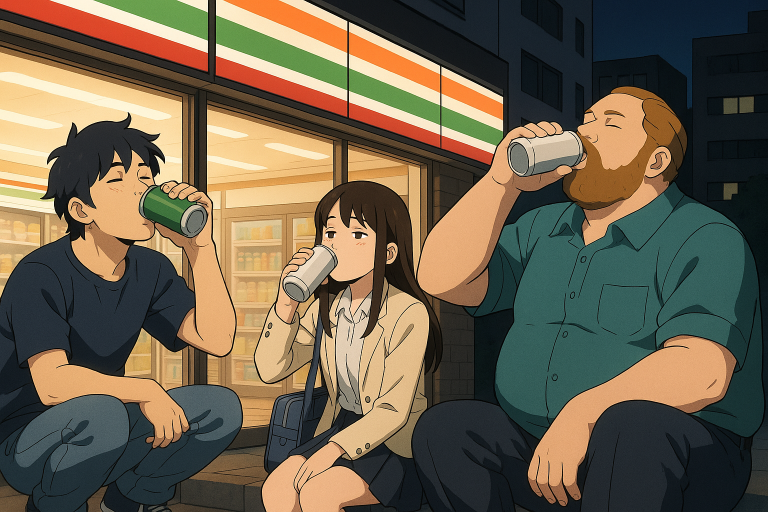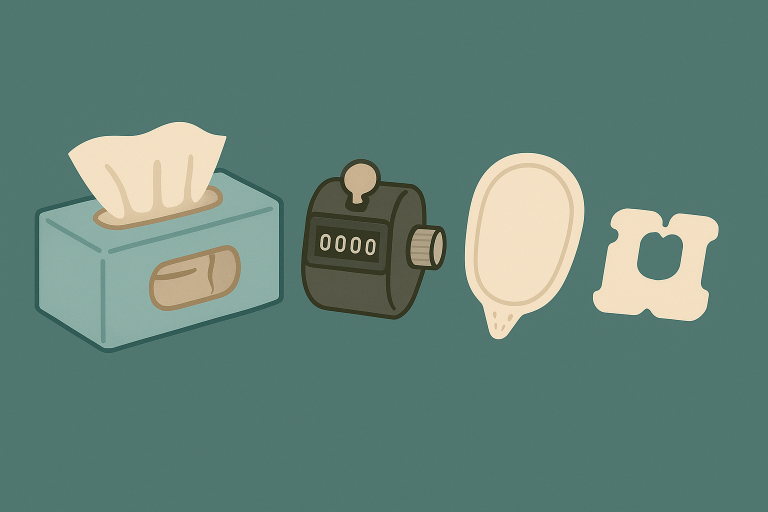Not Illegal, but Unwelcome: Why Public Drinking in Japan Isn’t What You Think
Many tourists arriving in Japan are surprised to find that drinking in public isn’t technically illegal. Unlike in many Western countries where street drinking is banned outright, Japan has no national law prohibiting alcohol consumption in public spaces. For some, this creates a sense of liberation. The convenience stores are stocked with cold beer and sake, and there’s no police officer shouting you down when you crack one open on a park bench.
But here’s the catch: Just because it’s not illegal doesn’t mean it’s welcome.
A Culture of Restraint
Japan’s alcohol culture is deeply rooted in ritual and respect. Sake is sipped slowly at shrine festivals. A glass of beer is shared in celebration with quiet toasts. Drinking here is often tied to tradition, community, and seasonal events—not reckless abandon.
It’s a culture that values the place, the occasion, and the people more than the buzz.
Tourists and the Street-Drinking Phenomenon
So why do so many foreign tourists immediately reach for a beer and head to the sidewalk?
The answer might lie not in Japan, but in where they’re coming from. In many Western countries, public drinking is strictly regulated, if not outright criminalized. This creates a kind of pent-up thirst for freedom. When visitors arrive in Japan and see no visible restrictions, they mistake it for an invitation.
To them, Japan feels like an open bar.
But to locals, it feels like an intrusion.
Law vs. Manners
Japanese society relies heavily on unspoken rules—kuki wo yomu, or “reading the air.” What’s expected isn’t always said. There’s no sign that says, “Don’t yell on the train,” but nobody does. There’s no loudspeaker telling you to clean up after yourself, but everyone does.
Drinking in public falls into this same silent agreement: Yes, you can, but no, you shouldn’t.
The Deeper Issue
Here’s the twist: Perhaps the real problem isn’t just foreign tourists misunderstanding the rules.
Perhaps the problem is Japan’s own long-standing tolerance for drunken behavior.
Salarymen passed out on trains. Rowdy company parties. Students celebrating too hard. These things have been quietly accepted for decades. That same tolerance might be sending the wrong message—not just to tourists, but to ourselves.
If Japan doesn’t clearly define what’s acceptable, how can we expect others to understand?
In fact, many Japanese people have become victims of theft or assault after becoming intoxicated in public. This isn’t just a concern for locals. Foreign visitors should also be cautious—being drunk in unfamiliar places can make anyone vulnerable.
In countries like the United States, the risk of being robbed may be accompanied by the terrifying possibility of being shot. I believe that’s why many people refrain from drinking openly on the streets there. In Japan, while the risk of gun violence is virtually nonexistent, that doesn’t mean public drinking should be taken lightly. Drinking without restraint in Japan can be seen as a lack of respect for the local culture.
Japanese people also get drunk outdoors and sometimes fall victim to pickpocketing or other crimes. So this is not a foreign-only issue—please be careful wherever you’re from.
Conclusion
Japan’s relationship with alcohol is complex—ritualistic, respectful, but also quietly permissive.
If we truly want to protect the beauty of our public spaces and the dignity of our drinking culture, we need to do more than scold outsiders.
We need to take a closer look in the mirror.
Not everything that’s not illegal should be acceptable.
It’s time to rethink not just how we drink—but how we live with alcohol in public.
So let’s enjoy ourselves—just within reason. And remember: Japanese sake tends to have a higher alcohol content than you might expect. Stay safe and drink smart!



コメント